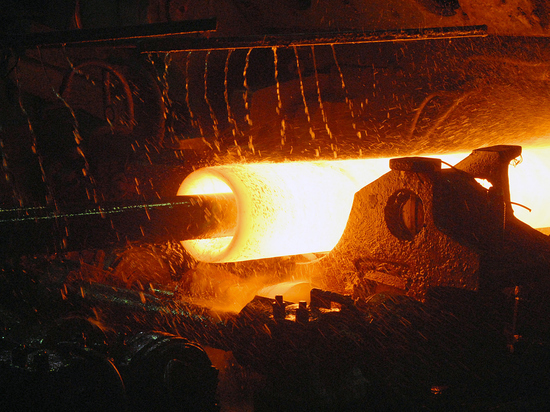Steel, timber, diamonds: the EU has prepared a new package of sanctions against Russia
[ad_1]

“Accept with lightning speed”
In its eighth sanctions package, the European Union quickly included several fundamentally new and quite formidable anti-Russian measures. In particular, in addition to the price ceiling for Russian oil, the document provides for a provisional complete ban on the import of steel and timber from the Russian Federation, as well as restrictive measures against the diamond mining company ALROSA. The price framework for the trade embargo is estimated at around €7 billion.
These details were revealed by the online publication EUobserver, having familiarized themselves with the internal papers of the EU. The plan arose, as they say, in the heat of the heat – in connection with the referendums and the accession to Russia of the DPR, LPR, Zaporozhye and Kherson regions.
According to EUobserver, the ban on steel imports will affect the entire range of steel products, from industrial rolls to sewing needles. In addition, the sanctions will not affect the entire diamond mining sector of the Russian Federation, but only the key state-owned company in this industry – ALROSA. The draft of the eighth package must be approved by all 27 EU members, which means that the document can still be adjusted as you like. According to EUobserver, the new measures also included restrictions on the supply of Russian vodka, caviar, cigarettes and cosmetics.
“Brussels reacted emotionally, but quite predictably, to the events around the referendums: in terms of expectations, excuse the tautology, there are no surprises,” says Nikita Maslennikov, a leading expert at the Center for Political Technologies. – By introducing new measures, the Europeans risk getting a zero-sum game. In particular, the blow to ALROSA will come back to haunt Amsterdam and London, the largest diamond cutting and polishing centers.”
For Russia, the ban on the supply of steel industry products may be most painful, fraught with a dramatic decrease in profitability (including export profitability), and in the future – a complete loss of sales markets. Russian metallurgists are forcibly pushed into the markets of friendly countries, where exports, according to businessman Vladimir Lisin, are becoming meaningless due to a sharp increase in transport and logistics costs. It is possible, Maslennikov believes, that they will have to trade at a huge discount, as is the case with oil and coal. And this situation will require additional regulatory measures to support the industry from the government.
Meanwhile, the interlocutor of MK notes, for the European industry, the new sanctions adopted against Russia will be akin to a crossbow. Certain product categories – say, in the form of semi-finished products of the Russian steel industry – have long been inscribed in local technological chains. Accordingly, Maslennikov argues, they will have to look for a replacement, which is unlikely to be done quickly. And in the conditions of a clear escalation of the energy crisis into an economic one, Europe cannot avoid an additional increase in costs and, as a result, a reduction in output.
“It seems that our neighbors in the EU will accept the eighth package of sanctions with lightning speed,” says Andrei Loboda, director of external relations at BitRiver. – In this situation, you will not envy the Russian stock market and 15 million private investors. Since the beginning of the year, its capitalization has dipped almost 2.5 times. ALROSA shares were in high demand due to their constant moderate growth and attractive dividend policy.”
Sanctions could cut Russia’s GDP, since these exports – steel, timber and diamonds – make up a large share of it. Russia will have to look for other buyers, reconsider logistics, says Fyodor Naumov, managing partner of the hedge fund PFL Advisors. On this way, according to him, the country faces almost insurmountable obstacles. For example, premium, high-margin goods, for example, different types of plywood, were mainly supplied to Europe and the USA. Local consumers knew how to work with these products and trusted suppliers.
“Now our manufacturers are trying to sell this premium product to Asia and the Middle East and are facing a number of difficulties,” explains Naumov. – Firstly, in developing countries it is not as in demand as in the West, and secondly, it may take more than six months to conclude a contract: you need to explore the market, take part in sectoral exhibitions, establish contacts, put a trial batch, train personnel, and so on. Further”.
[ad_2]
Source link






